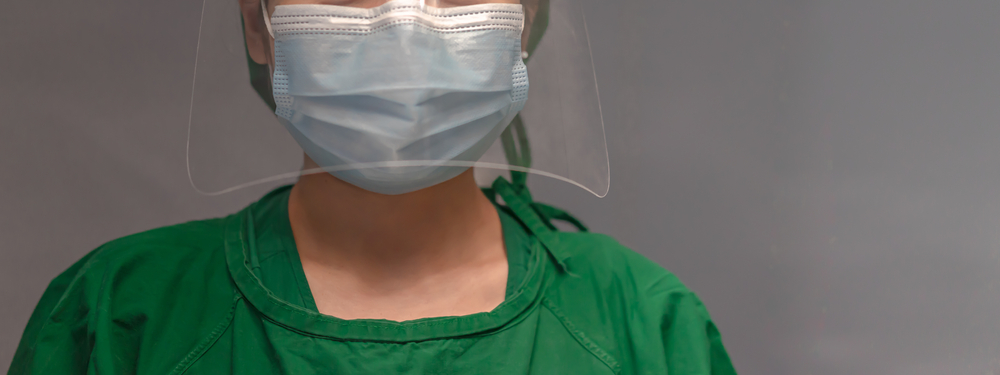The game “Six Degrees of Kevin Bacon,” is based on the theory that nobody is more than six relationships away from any other person in the world. It was conceived in 1994 (before social media!) by students at Albright College who were watching the movie “Footloose” on TV. That Kevin Bacon movie was followed by two other Kevin Bacon movies creating the impression that he was the center of the entertainment universe — having appeared in more than 65 movies, some of which are now cult classics. If you have played this game, you know it is uncanny how few steps may be involved to connect you to just about anyone. As the COVID-19 pandemic continues to spread, nearly everyone knows someone who is either sick with the virus, has tested positive or is in quarantine. I get regular phone calls from friends and family asking whether they should quarantine themselves based on various types of exposure. The Centers for Disease Control (CDC) has recently changed its guidelines regarding when Healthcare Professionals (HCPs) must quarantine after a COVID-19 exposure, based on their degree of exposure. These recently came in handy.
One of the wonderful nurses who works part time in the Wound Clinic is also in Nurse Practitioner school. Last week she was informed that a physician in whose office she performed a school-related rotation had tested positive for COVID-19. She had limited exposure to him and was wearing personal protective equipment (PPE). The nursing school advised her to quarantine for 2 weeks. However, our Hospital employee health told her she could work if she wished to (assuming she was healthy). How do we decide what to do?
The CDC’s recommendations for HCP exposure has evolved as the COVID-19 pandemic has evolved. Before there was recognized widespread transmission in the USA, the CDC recommended an aggressive approach to identifying exposed personnel (contact tracing) and restricted work for some individuals with higher risk exposures. As viral transmission from asymptomatic individuals was recognized (making contact tracing nearly impossible) and the pandemic spread, the CDC recommendations evolved as well. Check out the CDC’s Interim U.S. Guidance for Risk Assessment and Work Restrictions for Healthcare Personnel with Potential Exposure to COVID-19. The universal guidelines for HCPs are depicted in the table below.
At the risk of over-simplifying (so please read the table below), HCP’s who had prolonged close contact with a confirmed COVID-19 case and were NOT wearing personal protective equipment (PPE) should quarantine for 2 weeks. (The definition of “prolonged” contact is a time period of 15 or more minutes. However, any duration should be considered prolonged if the exposure occurs during performance of an aerosol-generating procedure.) HCP’s whose contact is not prolonged and who were wearing PPE have no work restrictions.
Since my nurse fit into the latter category, our hospital Employee Health Department correctly told her that quarantine was not required, assuming she was healthy. As Texas in general and Houston in particular continue to be pounded by COVID-19, reasonable guidelines are needed for healthcare personnel – otherwise there will be no one left to work.
| Exposure | Personal Protective Equipment Used | Work Restrictions |
| HCP who had prolonged1 close contact2 with a patient, visitor, or HCP with confirmed COVID-193 | • HCP not wearing a respirator or facemask4 • HCP not wearing eye protection if the person with COVID-19 was not wearing a cloth face covering or facemask • HCP not wearing all recommended PPE (i.e., gown, gloves, eye protection, respirator) while performing an aerosol-generating procedure1 | • Exclude from work for 14 days after last exposure5 • Advise HCP to monitor themselves for fever or symptoms consistent with COVID-196 • Any HCP who develop fever or symptoms consistent with COVID-196 should immediately contact their established point of contact (e.g., occupational health program) to arrange for medical evaluation and testing. |
| HCP other than those with exposure risk described above | N/A | • No work restrictions • Follow all recommended infection prevention and control practices, including wearing a facemask for source control while at work, monitoring themselves for fever or symptoms consistent with COVID-196 and not reporting to work when ill, and undergoing active screening for fever or symptoms consistent with COVID-196 at the beginning of their shift. • Any HCP who develop fever or symptoms consistent with COVID-196 should immediately self-isolate and contact their established point of contact (e.g., occupational health program) to arrange for medical evaluation and testing. |
| HCP with travel or community exposures should inform their occupational health program for guidance on need for work restrictions. | HCP with travel or community exposures should inform their occupational health program for guidance on need for work restrictions. | HCP with travel or community exposures should inform their occupational health program for guidance on need for work restrictions. |

Dr. Fife is a world renowned wound care physician dedicated to improving patient outcomes through quality driven care. Please visit my blog at CarolineFifeMD.com and my Youtube channel at https://www.youtube.com/c/carolinefifemd/videos
The opinions, comments, and content expressed or implied in my statements are solely my own and do not necessarily reflect the position or views of Intellicure or any of the boards on which I serve.



